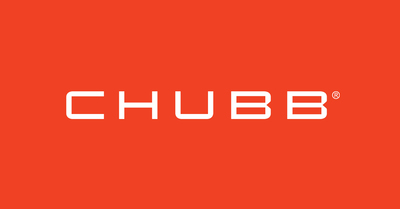WHITEHOUSE STATION, N.J., Feb. 25, 2020 /PRNewswire/ -- To help protect clients and their properties from the growing risk of water damage, Chubb is issuing two new resources created specifically for personal and commercial insurance clients.

"Being proactive is the best way to help combat internal water-related risks in the home," said Fran O'Brien, Division President, Chubb North America Personal Risk Services. "Without the proper preparation and necessary insurance coverages in place—particularly if a leak happens while you're not there to handle it—property losses can be a significant source of unexpected out-of-pocket costs."
Chubb's Third Annual Homeowners' Risk report and the Preventing Water Damage whitepaper examine water trends relating to property protection and risk mitigation behavior. The resources also include actionable tips homeowners and business owners can take to prevent leaks and minimize damage, should a claim occur.
"Water losses are a global issue and are severely impacting businesses of all sizes and industries," said Derek Talbott, Division President, Chubb North America Commercial Property. "The frequency and cost of water damage losses continue to increase. Fortunately, there are a number of innovative technologies that can help clients reduce the potential for losses and avoid business disruptions. Chubb risk engineers can help assess clients' vulnerabilities, and suggest the best and most cost effective loss mitigation options for interior water damage-related exposures."
Chubb is committed to helping clients take a "predict and prevent" approach to mitigating a variety of exposures.
A copy of the Third Annual Homeowners' Risk report is available here and the Preventing Water Damage whitepaper is here. Key findings are outlined below.
Third Annual Homeowners' Risk Report:
Chubb's annual study finds that when it comes to water damage, homeowners express concern about property protection yet continue to take a passive approach to risk management.
Specifically, the study identifies several inconsistencies between homeowner beliefs versus their actions:
- The overwhelming majority of homeowners surveyed (89%) report being "very" or "somewhat" confident in their ability to check for possible damage or maintenance issues around their homes. But more than four million homeowners still submit a property claim each year.
- External weather threats and internal water damage round out the top three concerns for homeowners when it comes to perceived home threats. Yet no more than one of every five homeowners surveyed takes any single water-related risk mitigation best practice.
- Half of all homeowners (51%) think a plumbing or appliance water leak costs less than $5,000 in damage. However, according to Chubb's internal claims data from 2014 through 2018, the average water leak cost is more than $55,000, and the average water back-up loss for homeowners is almost $45,000.
The report also examines how homeowners perceive their neighbors and undertake home protection behaviors while traveling, as well as what they are planning when it comes to renovations.
Preventing Water Damage Whitepaper
Designed to provide agents and brokers, risk managers, and facilities managers with the knowledge and tools to understand water leaks, the whitepaper underscores that:
- While no business is truly immune, the healthcare, commercial real estate and hospitality industries are experiencing a significant increase in interior water damage claims.
- Water intrusion from roofs, and leaks from toilet, sprinklers, water heaters and HVAC are the top causes of interior water damage.
- Domestic plumbing is a primary culprit of water damage across commercial buildings. Most claims involve leaking pipes caused by corrosion, pipe burst or failure.
- When it comes to corrosion, galvanic corrosion is the most common type. Lesser quality pipes—even those that meet industry standards—is also a primary driver of increased corrosion.
The whitepaper also looks at Internet of Things (IoT) sensor technology that has the ability to detect a small amount of leaking water and alert building staff, potentially preventing catastrophic losses. In addition, the paper provides information about important features when selecting a leak detection vendor, along with a checklist for building a commercial water damage mitigation plan to help reduce the impact and costs of water damage on a business.
About Chubb
Chubb is the world's largest publicly traded property and casualty insurance company. With operations in 54 countries and territories, Chubb provides commercial and personal property and casualty insurance, personal accident and supplemental health insurance, reinsurance and life insurance to a diverse group of clients. As an underwriting company, we assess, assume and manage risk with insight and discipline. We service and pay our claims fairly and promptly. The company is also defined by its extensive product and service offerings, broad distribution capabilities, exceptional financial strength and local operations globally. Parent company Chubb Limited is listed on the New York Stock Exchange (NYSE: CB) and is a component of the S&P 500 index. Chubb maintains executive offices in Zurich, New York, London, Paris and other locations, and employs more than 30,000 people worldwide. Additional information can be found at: chubb.com.
SOURCE Chubb
